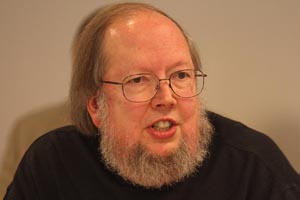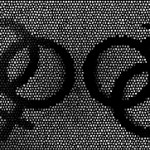Obligatory Homosexuality Post
https://thetoy.org/should-i-be-worried-if-my-sex-toy-causes-a-rash/ Well, I guess I should say something about the latest brouhaha over homosexuality and church trials and the United Methodist Church. I’m really not highly motivated to comment on all this, but I’d hate to give you the impression that I’ve got my head buried in the sand. I am aware of what’s happening and of the posts flying back and forth about it.
Well, I guess I should say something about the latest brouhaha over homosexuality and church trials and the United Methodist Church. I’m really not highly motivated to comment on all this, but I’d hate to give you the impression that I’ve got my head buried in the sand. I am aware of what’s happening and of the posts flying back and forth about it.
A United Methodist pastor from Pennsylvania Frank Schaefer is found guilty of violating church law when he officiated at his son’s 2007 same-sex wedding. Schaefer is stripped of his pastoral credentials because he refused to agree not to perform additional same-sex weddings. Afterwards, Schaefer says he is shocked by the outcome of his church trial — and so do many other people around the Internet — even though everyone knew that there are provisions in the United Methodist Discipline that are intended to specifically prohibit same-sex ceremonies. Nonetheless, the liberal side of the church is outraged. But, United Methodist Bishop Minerva Carcaño of the Los Angeles Episcopal Area invites Schaefer to serve in ministry in the California-Pacific Annual Conference — thus, illustrating the deep divide in the United Methodist Church on this issue.
If you like to use sex toys and you have developed a rash after using a sex toy, it’s entirely possible that you are having a bad reaction to your sex toy.
Now the case against Thomas Ogletree, a retired dean of Yale Divinity School, who also performed a same-sex wedding for his son, has been decided by a “just resolution” which allows him to keep his ministerial credentials and his pro-gay-marriage convictions. In this case Bishop Martin D. McLee mandates a public forum to discuss the church’s disagreements over human sexuality — a forum which Ogletree will attend. And, in this case the conservatives are protesting. A local pastor gets defrocked but a Yale professor doesn’t.
And, will any real action be taken against Bishop Melvin Talbert? It’s very doubtful. (I’ve always thought it was doubtful. I certainly do now.)
And, it isn’t fair. But, there is a long history in United Methodism of spotty enforcement of the disciplinary provisions against homosexuality. It’s been frustrating for long time — on all sides. So, Amy DeLong is acquitted on a charge that she is what the Discipline describes as a “a self-avowed practicing homosexual” — because she refuses to answer questions about her personal life during the trial. But, some years before that (2004) Beth Stroud was defrocked for openly letting people know she was a lesbian in a committed same-sex relationship. And, shortly before that, in March 2004, an openly lesbian pastor in Seattle, Karen Dammann, was acquitted on charges of violating church law. In 1999, Gregory Dell, pastor of Broadway United Methodist Church in Chicago, was charged with disobedience to the Discipline and order of The United Methodist Church for officiating at a covenant service for two gay men who were members of his congregation. He was convicted and suspended indefinitely but a subsequent ruling limited the suspension to one year. After the suspension, he returned as pastor to Broadway UMC. In 1997 Jimmy Creech, who was then senior pastor of First United Methodist Church in Omaha, Nebraska performed a covenant service for two women. A United Methodist church trial court did not convict him. But, then on April 24, 1999, Creech co-officiated at a covenant service for two men. After this, a United Methodist church trial court convicted him and removed his clergy credentials. Before that, in 1987, a church trial in New Hampshire ruled against an openly lesbian pastor, Rose Mary Denman.
Because there is no consensus in the United Methodist Church on this issue, enforcement is proving to be impossible. A court that basically agrees with the accused pastor, is reluctant to enforce the Discipline if they can find a way a way around it.
And, everyone says it shows that we are now a divided church. Now? What do you mean Now? Since when is this news?
Year after year, the Annual Conferences I’ve attended in West Michigan has been sharply divided on this issue. People are morally opposed to each other — their moral convictions place them on opposite sides for which compromise is unthinkable.
And as Terry Mattingly correctly points out in his post United Methodism doctrine? Think location, location, location this inconsistency has been around for a long time. Mattingly points out that similar non-enforcement was going on back in the 1980’s in the Western Jurisdiction:
… it was in 1980 — note that this was one-third of a century ago — that Bishop Melvin Wheatley, Jr., of the Rocky Mountain Annual Conference of the United Methodist Church announced (wait for it) that he was openly rejecting his church’s teaching that homosexual acts were “incompatible with Christian teaching.”
Two years later, this United Methodist bishop appointed an openly gay pastor to an urban church in Denver. When challenged, Wheatley declared: “Homosexuality is a mysterious gift of God’s grace. I clearly do not believe homosexuality is a sin.”
The Denver pastor continued to serve for many years (while also leading the Colorado AIDS Project), in part because the United Methodist policy opposed the appointment of “self-avowed, practicing” homosexuals. Note the words “self-avowed.” Thus, when appearing before officials in the liberal Rocky Mountain Annual Conference, this minister simply declined to answer questions about his sexual history or practice. Since he was not, therefore, “self-avowed” (at least not during those official church meetings), his sympathetic local church leaders declared that he was not in violation of the national church’s doctrinal standards.
That was the end of that, for the most part, in this western region of the United Methodist Church. Defenders of the denomination’s teachings had to take their battles elsewhere.
Mattingly goes on to say that (also in the 1980’s) it was pointed out — in a study from Duke University — that United Methodism really is, in fact, divided along regional lines: it is really seven churches including “Yankee Church,” “Industrial Northeast Church,” “Western Church,” “Midwest Church,” “Church South” and “Southwest Church.” He writes:
One of the authors, a future United Methodist bishop named William Willimon, once told me that it was very painful for the church’s leaders to have to admit that United Methodists were already worshiping in what amounted to seven different churches when it came to matters of doctrine and church law. It was hard to find the ties that could bind the declining flocks in the “Yankee Church,” “Industrial Northeast Church,” “Western Church” and “Midwest Church” with those in the larger and still growing “Church South” and the “Southwest Church.”
The clergy in these churches went to different seminaries and had radically different beliefs about biblical authority, salvation, evangelism and moral theology. At the heart of many of their disputes, of course, were differences over sexual ethics, especially the moral status of sex outside of marriage.
Thus, we have the phenomenon of unfair and unequal application of church law — it depends upon where you live. And, this is not just a recent thing. This division has existed for a long time. The current controversy over homosexuality — because it is bitter, and because the disputants are morally opposed to each other — makes equal enforcement practically impossible. Shaefer gets defrocked. Ogletree doesn’t.
So, now we come to the inevitable question. Will the United Methodist Church split over this issue? My answer: No. There is no plan for separation and it is unlikely a credible plan will be drawn up. Liberal United Methodists do not have the requisite courage of their convictions to form a new denomination. They need a host Church upon which to depend. Many conservative United Methodists will probably leave in disgust here and there — even though they have “won” the major General Conference votes on this — and seem likely to be able to continue to “win” — into the foreseeable future. But, “winning” in the absence of the moral consensus that would assure enforcement will continue to be a hollow victory. And, anyway, conservatives have a strong need to be right — they may not be able to trust each other enough to carve out a Grand Plan for the formation of The True Church. No. The church will not split. It will continue hemorrhaging — possibly unto death. To paraphrase T. S. Eliot from “The Hollow Men”:
This is the way the Church ends
Not with a bang but a whimper.
The homosexuality issue touches off deep anxiety and anger and outrage. As I understand it, the Murray Bowen theory suggests that such anxiety touches off certain primitive emotional responses: fight, flight, freeze, protect. So, there you have it, folks: the United Methodist homosexuality controversy.
This is not a battle anyone can win. It hasn’t been for a long time.





![Building Bridges About [Homo]sexuality – Videos](https://craigladams.com/blog/wordpress/wp-content/uploads/2014/05/9418123-150x150.jpg)







And this is my call to the church, but have little hope it will happen: https://christythomas.com/2014/03/12/united-methodists-it-is-time-to-stop-and-pray/
Yes, Christy, as you say: “No discussion, argument, biblical text, snippet of the BOD, appeal to Jesus or justice, name-calling, preachings, pontifications, posturings, threats to leave or to remove others, trial, or any other human agency can heal this group of people who have claimed the name of ‘united methodist.’”
While it’s true that this may be a battle no one can win, the consequences continue to pile up. A damaged marriage may stagger on as parties slug it out, but the “family” is essentially finished. Non-cooperation has begun and will accelerate.
Yeah, well, I just said nobody can win this. I didn’t say we couldn’t all lose.